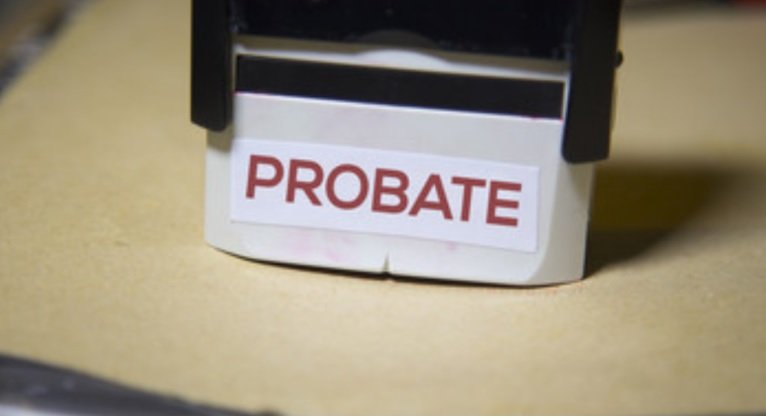Sell a House Fast in Probate
We revisit 2 common questions in Pennsylvania regarding real estate and probate: “Can a house be sold while in probate in Pennsylvania?” and “Can I sell my inherited house?” The good news is the answer is “Yes.”
NOTE: Please accept our condolences on the passing of a loved one, and we extend our deepest sympathies to you, and to your family during this difficult time.
Overview: The probate process in Bucks County, Chester County, Delaware County, Montgomery County, and Philadelphia County are all very similar. The County where the deceased resided at the time of their death governs the Probate proceedings for property (i.e. houses). Step 1 is to file at the County Register of Wills. Any disputes (i.e. among heirs) are resolved in the County Orphans Court. Links to each County’s website and common forms are below.
County Register of Wills
Selling a house while in probate is possible, but there are multiple steps and rules to follow. The County probate court will monitor the process to make sure you are authorized to sell the property, and that the process is transparent. If you are the administrator or the executor of the estate, you also must monitor and approve the sale and the process. While the process is a little complicated, it is possible to sell a house while in Probate in Pennsylvania.
TIP: We also cover options available to keep a house OUT of the PROBATE process in this article.
Can A House Be Sold While In Probate In Pennsylvania?
First Question to Answer – Is There a Will?

The deceased person who passed away is legally known as the “decedent” when it comes to estates and probate. It’s critical to determine if they prepared a Last Will & Testament, and who has an original copy. If there is a Will, you or your Attorney need to have it in your possession to open the Probate process as all Wills are filed publicly at the County Register of Wills. Make sure you protect that document!
The decedent’s Will designates a specific person to administer the estate and probate process, and this role is known as the “Executor”. If the person designated is willing and able to act in that capacity, then he or she will be officially appointed as the executor by the court.
If on the other hand, no one has been designated as executor in the will, then the court and/or other relatives will appoint a near relative to act as administrator.
Second Question – Is There a Surviving Spouse?
Certain property assets like a home and life insurance can be exempt from the probate process. Most married couples in Pennsylvania own their primary residence as “Tenancy by the Entirety”. The decedents share or interest in the property transfers upon their death to the surviving spouse. This is known as the “right of survivorship”. A copy of the deed to the property will indicate the form of ownership of the property, and deeds can be searched online via most county’s web sites.
So if the decedent was married at the time of death, and owned the property as “tenants in the entirety”, then regardless of the presence of a Will, or what the Will states, the house is exempt from the Court Probate process and can be sold by the surviving spouse. This is the best way to sell a house fast in Probate. This exemption also applies to the PA MAER program (see below).
Third Question – Did the Deceased Receive Medical Assistance from the State (i.e. Medicaid)?
If the deceased lived in an assisted living facility, or received assistance care at home, during the last 5 years, the state may have a claim against the property for unpaid bills, or seek reimbursement of expenses. The Pennsylvania Department of Public Welfare (DPW) has a right to be repaid for expenses and the Executor (or an attorney) should contact the DPW and obtain written confirmation if any money is owed under the Pennsylvania Medical Assistance Estate Recovery (MAER) Program.
CAUTION: There is risk of personal liability to an Executor if they distribute estate assets without first contacting the PA DPW.
Ways to Keep A House Out of Probate – And Sell It Fast
The fastest way to sell the deceased’s house is to keep the house out of the probate process. So it’s important to know what triggers probate.
First, if the deceased did not have a will, it is said they have died “intestate”, and Pennsylvania law governs the process known as “Intestate Succession“. If the situation is Intestate, it’s likely that title to the house needs to be treated through probate court, and you will likely need to visit the county Register of Wills office if you wish to be the administrator on the estate.
However, despite Intestate, there is a process known as Affidavit of Heirship that can establish a) who the legal heirs are and b) how to disburse the property – provided there are no disputes with either. An estate attorney can guide you through the process and may be able to keep the house out of probate. An Affidavit of Heirship can be filed without an attorney, provided there are 2 witnesses who have nothing to gain from the sale, and one of the witnesses can attest to knowing the affairs and wishes of the deceased.
If the deceased did have a valid will, and an Executor is named, there is another option to sell a house that would otherwise be handled in probate process. The two conditions are:
- the estate only has the mortgage debt and,
- the deceased has NOT received Medicaid benefits as described above.
Then a legal option to transfer the title to the property is known as Muniment of Title. This is essentially a legal term for a document that proves ownership of an asset. For example, a death certificate can be used by the surviving spouse, who held title to property with the decedent via Tenancy in Entirety, to prove that title resides with the surviving spouse. Title companies will typically accept the death certificate and be able to ensure clean title via this method. Most other estate situations would require the Will to be validated by the County Register of Wills.
How Can We Sell a House in Probate?

If the deceased’s estate is already in probate, or likely to be soon, there are still options to speed up the sale of the house in probate. The probate process begins by filing a Petition for Probate and Grant Letters.
Appointment of Administrator/Executor
If the decedent’s will designated a specific person as the executor and that person is willing to take on the responsibility, then he or she will be officially appointed as the executor by the court. If on the other hand, no one has been has been designated as executor in the Will, then the court and/or other relatives will appoint a near relative to act as administrator. Ultimately, the person in this role is also known as the “Personal Representative” of the decedent’s estate, and the court filing is to obtain either Letters Testamentary or Letters of Administration. Both carry equal weight for managing the estate. Some County’s offer a “Short Certificate” that can be used to gain access to assets of the deceased. Now you have the legal authority to conduct business on behalf of the decedent’s estate.
Next Step – Hire a Real Estate Appraiser
Now the property needs to be appraised. Unlike today’s banking and mortgage environment, YOU can pick the appraiser. It’s important you find a competent, licensed, local, professional for the task. The property must ultimately sell at 90% of the appraised value. For example, if the house was appraised for $100,000, it has to sell for at least $90,000.
You Have Authority and an Appraisal. Now You Need Permission!
Before you can sell the property, you must petition the Court for permission to sell the house. Selling without the Court’s permission is a big risk. Provide the details on how you plan to conduct the sale and wait for the Court’s approval.
We received Court Permission! Now, Can We Sell?
The house is getting closer to being sold, but there are more steps and the Personal Representative needs to make a decision. Do you list the house with a traditional realtor (on the MLS) OR go with a Professional House Buyer. Before you decide, it’s important to note 1) commissions and transfer taxes typically consume 6-8% of the sale price, 2) potential buyers must be informed of the estate process, and that only the court can confirm and finalize their offer, which could be weeks or months down the road, and 3) that any interested buyer must make an offer and include a 10% deposit. You are free to accept or reject that offer. This is where a house buying company can help you Sell My Inherited House. If you do accept an offer, the offer is still subject to court confirmation. Next step is to submit the offer to the court for confirmation. If everyone is in agreement, then a date is set for the sale to be finalized in a court hearing.
When the offer on the house in probate has been accepted and confirmed by the court, a Notice of Proposed Action must be mailed to all the heirs. This document states all the terms and conditions of the proposed sale. Heirs then have 15 days to review the notice and raise objections if they have any. If none of the heirs has any objections, the sale can go forward without a court hearing. An ad must also be taken out in the local newspaper to inform the public about the probate sale, and the hearing date.
More Bidders At The Court Hearing?
Now, here’s where it gets a little complicated. Before the court confirms and approves the original buyer’s offer, the judge will ask those present in the courtroom if any of them would like to bid on the property. If no one does, then the sale proceeds in the standard fashion mentioned above.
If, however, there is an overbid, the original buyer’s 10% deposit must be refunded before the new sale at the new bid price can proceed. When the overbid is accepted, the new buyer must then put up a 10% deposit, which is required to be a cashier’s check. This check for the accepted overbid deposit is presented to the executor/administrator at the winning bidder’s acceptance hearing.
Upon court confirmation and approval, a contract can then be signed. But it is a specialized kind of sale contract because it cannot have any contingencies, and escrow closes soon after the hearing, usually within 15 days.
It’s Possible To Sell a House Yourself in Probate
But as you can see, there are some complicated rules for selling a house while in probate. We do recommend contacting an attorney for more specific help, but are always available to answer any questions you have.
Helpful Pennsylvania Probate, Estate, Inheritance, and Medicaid Resources
Philadelphia County

- Philadelphia County Register of Wills
- Philadelphia County Probate Forms
- Philadelphia County Orphans Court
Bucks County
Chester County
Delaware County
Montgomery County
Pennsylvania Probate Fee’s and Inheritance Tax
Contact Us
We would love to hear from you! Please fill out this form and we will get in touch with you shortly.
Or Give Us A Call Now At: (484)713-4009
We help property owners just like you, in all kinds of situations. From divorce, foreclosure, death of a family member, burdensome rental property, etc. We buy houses in Pennsylvania… including Philadelphia and surrounding areas and pay a fair cash price, fast. Sell a House Fast in Probate!
